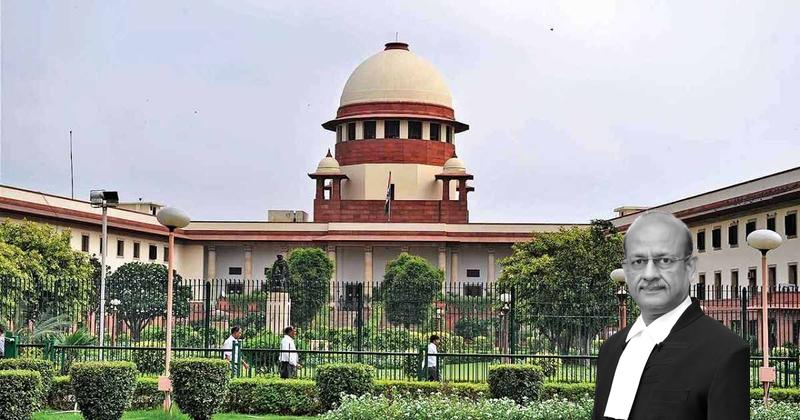Delve into the nuanced legal analysis provided by the court in a recent case regarding the grant of bail under the Narcotic Drugs and Psychotropic Substances (NDPS) Act. The court’s examination of key provisions, precedents, and procedural requirements sheds light on the stringent considerations involved in such cases. This summary highlights the importance of thorough scrutiny and adherence to legal standards in bail applications related to drug offenses.
Facts
- The complaint was filed through the Intelligence Officer at the Lucknow Zonal Unit of the Narcotics Control Bureau on 16 September 2019.
- The NCB received information about three individuals carrying heroin/morphine in a vehicle from Dimapur to Rampur in Uttar Pradesh.
- A search was conducted, but nothing objectionable was found during the personal search.
- The respondent claimed that the statement under Section 67 was not explained properly to him.
- The High Court allowed the bail application on 1 October 2020.
- The respondent argued that he was only a companion in the vehicle and not in conscious possession of the contraband.
- The chemical examination report showed that the samples tested positive for morphine and not heroin.
- A CDR analysis indicated communication between the respondent and suspected individuals involved in drug trafficking.
- The statements of the accused were recorded in English and translated into Manipuri before their arrest.
- Application for bail rejected by Seventh Additional District and Sessions Judge, Lucknow on 27 June 2019
- Reason for rejection: recovery of a huge quantity of heroin weighing 3.300 kg
- Seriousness and gravity of the crime cited as the basis for denial of bail
- High Court allowed bail application despite lower court’s decision
Also Read: Electoral Malpractices in Mayor Election
Arguments
- The ASG argues that no case for bail exists under Section 37(1)(b)(ii) of the NDPS Act.
- The respondent has consistently avoided appearing before the Sessions Judge, leading to a non-bailable warrant against him.
- The respondent was found with a large quantity of contraband in a vehicle traveling from Dimapur to Rampur.
- The respondent is not the driver or owner of the vehicle but was closely in contact with co-accused.
- The High Court granting bail overlooked crucial circumstances of the case: the large amount of contraband, the respondent’s travel route, and call data records.
- The ASG does not rely on a confessional statement due to legal reasons.
- The possession of contraband is not solely attributed to the respondent based on previous court decisions.
- Compliance with Section 42 of the NDPS Act for vehicle searches is under trial scrutiny.
- A presumption of possession under Section 54 of the NDPS Act may apply.
Also Read: Balancing Power and Transparency: Electoral Bonds Struck Down, Disclosure Mandated
Analysis
- The absence of possession of contraband on the person of the respondent does not absolve the High Court of the scrutiny required under Section 37(1)(b)(ii) of the NDPS Act.
- Referring to the case of Union of India v. Rattan Mallik, where bail was cancelled despite contraband being found in a specially made cavity in a truck and not on the accused, the need for thorough scrutiny by the High Court is emphasized.
- The complaint filed in the case alleges information about the accused reaching Uttar Pradesh at a specific time, which was immediately reduced to writing.
- A statement under Section 67 of the NDPS Act was deemed inadmissible by the court following the decision in Tofan Singh.
- The court reiterated the governing principles based on previous precedents concerning bail cancellations and the standards for granting bail under the NDPS Act.
- Section 37 of the NDPS Act regulates the grant of bail in cases involving offences under the NDPS Act.
- The standard for granting bail is based on ‘reasonable grounds to believe’ that the person is not guilty of the offence.
- Section 37(1)(b)(ii) imposes limitations on the grant of bail for certain specified offences.
- These limitations include giving the Prosecutor an opportunity to oppose the application for bail.
- Compliance with the procedure under Section 42 of the NDPS Act is a question of fact.
- The written information was sent to the Zonal Director as per the Act’s requirement.
- The trial is set to take place in the Court where evidence will be presented.
- The ASG argued against granting bail based on emerging material.
- The contention of non-compliance with Section 42 appears prima facie misplaced.
- Various crucial circumstances were noted regarding the respondent’s bail application.
- The impugned order by the High Court overlooked significant circumstances in the case.
- The concept of possession is reiterated in Sections 20 to 22 of the NDPS Act.
- Section 42 mandates the writing and forwarding of information within 72 hours of an offence.
- The respondent is accused under Section 8 of the NDPS Act, punishable under various sections of the Act.
- The High Court failed to consider the seriousness and gravity of the crime
- The High Court did not give due weight to crucial requirements and material circumstances
- The respondent, after being granted bail, consistently remained absent from the criminal trial leading to a non-bailable warrant against him
- Due to these factors, the order of the High Court is deemed unsustainable
Also Read: Recall of Resolution Plan Approval: Legal Analysis
Decision
- The application for bail filed by the respondent is dismissed.
- The respondent is required to surrender immediately.
- Any pending applications are deemed disposed of.
- The appeal is allowed, and the High Court’s judgment dated 1 October 2020 is set aside.
Case Title: UNION OF INDIA THROUGH NCB Vs. MD. NAWAZ KHAN (2021 INSC 526)
Case Number: Crl.A. No.-001043-001043 / 2021



